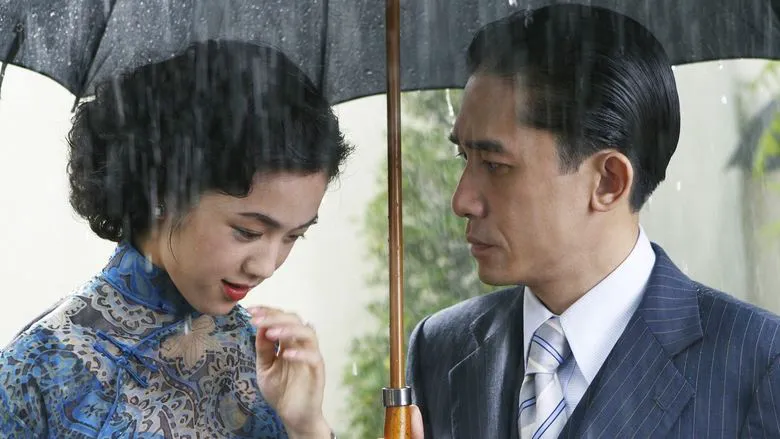Lust, Caution: A Solitary Viewing
I used to dislike going to the movies, mainly because it required a trip to the cinema. It felt like dating, a series of prescribed steps: “flirting, then confessing, then holding hands, then kissing, then making love.” Each step felt sacred, a ritual that couldn’t be skipped. That’s why I never enjoyed going alone; those rituals felt incomplete. Movies were synonymous with dates, and single people, in my mind, didn’t qualify for a ticket. Now, I realize some films transcend romance, demanding a solitary viewing. I hope it’s not too late to appreciate them.
A Time of Turmoil
“Lust, Caution” is set against the backdrop of a war-torn era, dominated by warlords. A group of students from Lingnan University decide to spend their summer vacation planning and executing the assassination of Mr. Yee, a high-ranking official and collaborator with the Japanese.
For obvious reasons, I’d rather not delve into the political aspects. But then I thought, how disappointed Xiaobo would be if he knew. It struck me that my thoughts were being interrupted before they even began, much like Wang Jiazhi’s (the protagonist) love affair.
Naivete and Reality
The idea of a few young students assassinating a top intelligence officer seems almost comical. Sometimes, students oversimplify politics, failing to distinguish between right and wrong. Watching them, I couldn’t help but recall my own past arrogance.
However, we must view history through a historical lens, avoiding the application of today’s standards to the past. Who hasn’t been reckless or ignorant in their youth? Without youthful naiveté, how can we appreciate the maturity that follows?

The Nature of Truth
Historical truth is like a spy network, multifaceted and elusive. Each faction believes its version is the only absolute truth. One spy’s intelligence often contradicts another’s, leading me to suspect that captured spies might be feeding the enemy false information.
Did Mr. Yee truly not suspect Wang Jiazhi was a spy? As a spy himself, shouldn’t he have been particularly perceptive? They were indeed friendly, almost as if they were exchanging disinformation with a rival organization.
The Act
The first sexual encounter. The audience waited, Mr. Yee waited, Wang Jiazhi waited. Finally, it arrived. Both succeeded in their own way. The act was violent; I don’t recall the original novel being so explicit, but I’m not sure. Even after watching the movie and rereading the novel, I doubt I’d remember the details. Mr. Yee’s violence in the film reflects his inner repression. I can’t quite imagine the nature of that repression, as I have no desire to be a spymaster. For someone who has been seduced countless times, this is like torturing a prisoner, a routine occurrence. Did they both release pent-up desires? Probably not for the first time, perhaps the second or third.
Everything in this world is related to sex, but sex itself is only related to power. This scene perfectly illustrates this point. Mr. Yee’s composure in the chair contrasts sharply with his subsequent brutality. Wang Jiazhi has become his captive. For the short, unattractive Mr. Yee, power is the ultimate aphrodisiac. Wang Jiazhi’s captivating smile at the end of the film proves her success, however brief and naive.
The Diamond and the Downfall
Did Wang Jiazhi’s downfall stem from the diamond ring Mr. Yee gave her? It’s hard to say. In that era, life wasn’t one’s own, chastity wasn’t one’s own, and money wasn’t one’s own. All that remained was love. Only love could lead to Wang Jiazhi’s ruin. Without a powerful nation, where does individual dignity come from? Ultimately, it’s a chicken-or-egg dilemma.